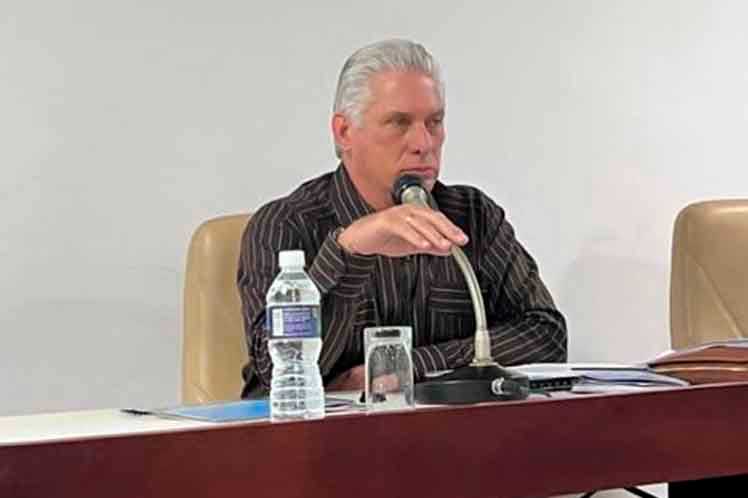The president spoke extensively with the members of the Economic Affairs Commission of the National People’s Power Assembly (Parliament) about the complex situation in the country, subjected to pressure from the United States in various fields, with the purpose of making the Revolution succumb.
They fear socialist construction in a Cuba without an economic blockade, said Diaz-Canel, who pointed out that we have not been able to do what we wanted, but rather what was possible in the midst of so many aggressions and at a very high cost in terms of the sacrifice of the population.
The first secretary of the Communist Party of Cuba pointed out that the imperialist logic aspires to suffocate Cuba economically to cause social unrest, a policy that he described as dishonest, criminal and genocidal, since no nation has the right to prevent the development of another.
It is hypocritical to affirm that the blockade is to help the Cuban people, when all its actions directly affect them, he remarked.
Diaz-Canel pointed out that the strategy of imperial domination has three fundamental elements: the first is the platform of cultural colonization, which uses social networks and the entertainment industry to impose its values and that the peoples deny their roots, culture and identity.
The second is in the economic field, which in the case of Cuba is committed to coercive measures and the intensification of the blockade policy, and the third is subversion, to which millions of dollars are dedicated each year to try to destroy the social political system that Cubans chose.
They are frustrated for not having achieved what they set out to do on July 11 last year, the president said. They failed and have failed in all the soft-coup actions implemented.
Diaz-Canel emphasized that the answer to this strategy is socialist construction. We cannot give up social justice, he added, the essence of our system is the greatest possible social justice, with the greatest possible democracy and social participation.
The Cuban head of State commented that the country is committed to a cultural decolonization program, whose objective is to ensure that current generations know their history and culture, to convert them into convictions that contribute to the defense of our ideas.
The president added that in the face of subversion, we put revolutionary articulation before, with greater participation in social networks, more social debate, and the increasingly broad participation of representatives of social sectors in the analysis of public policies and laws in process.
Likewise, he noted that new measures and alternatives for economic problems continue to be studied; in the midst of shortages we have not stopped, we continue working, but always within socialism, he explained.
jg/car/kmg









